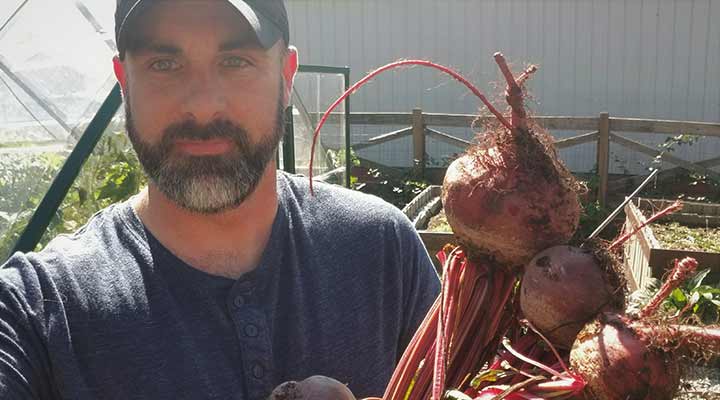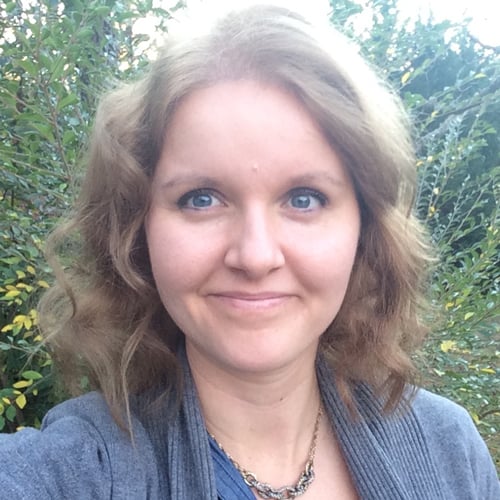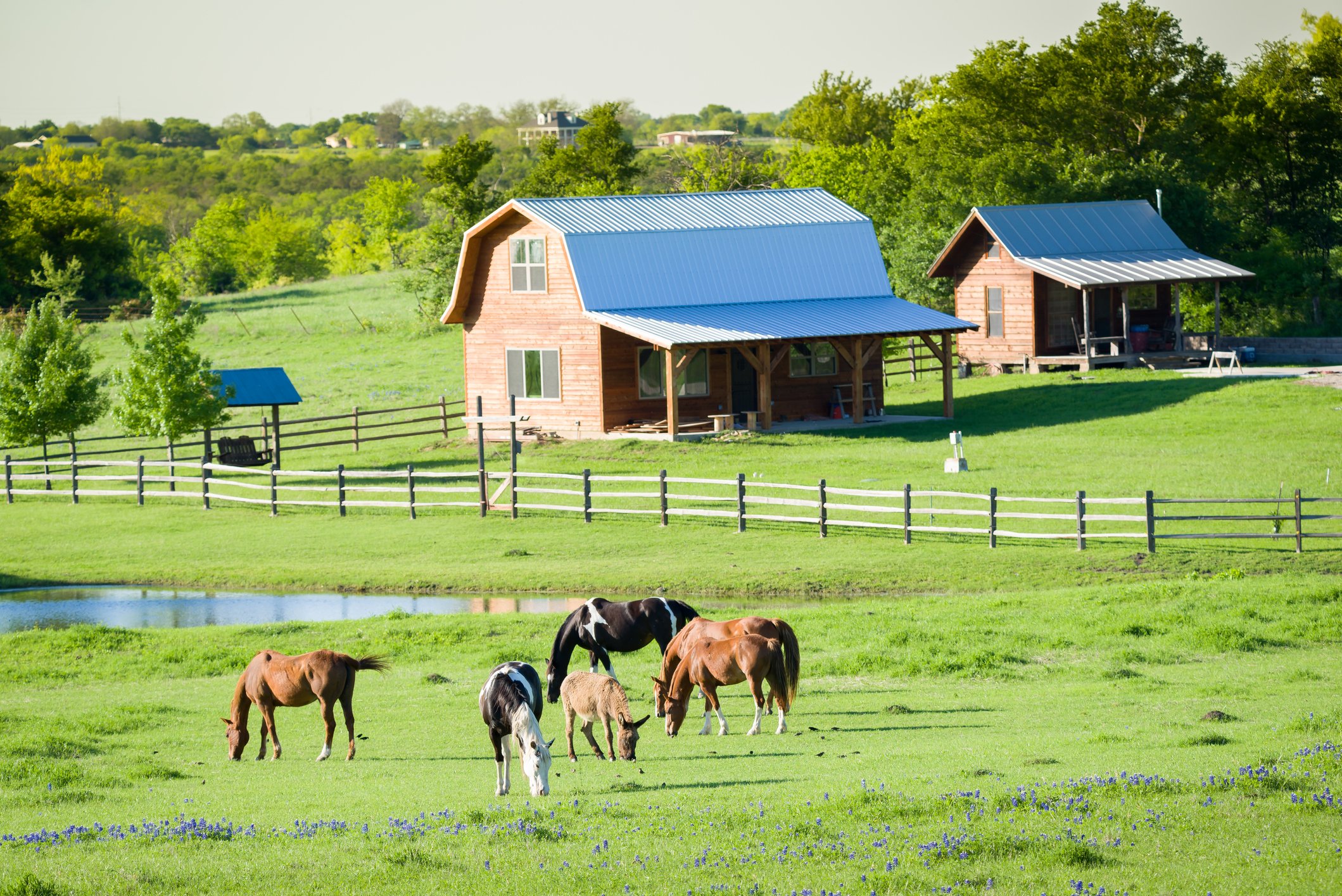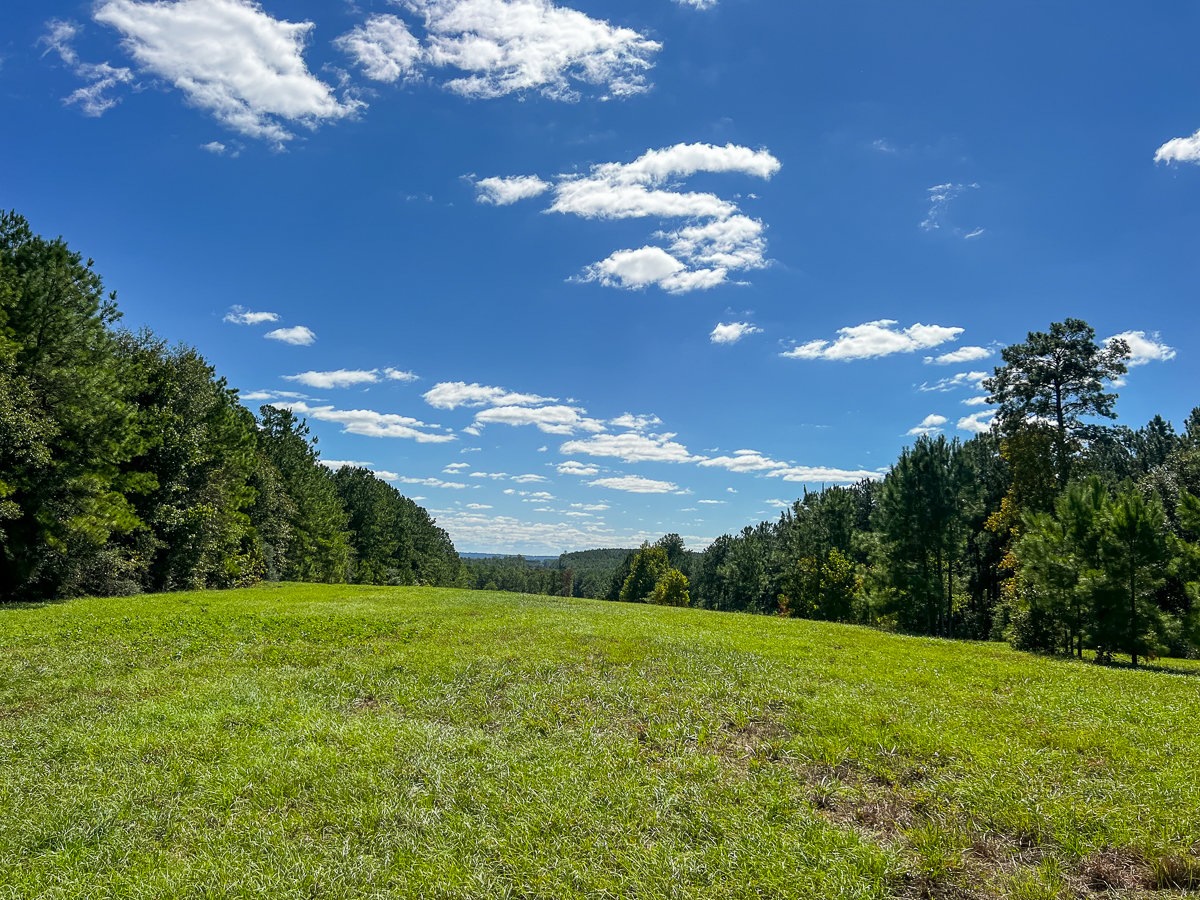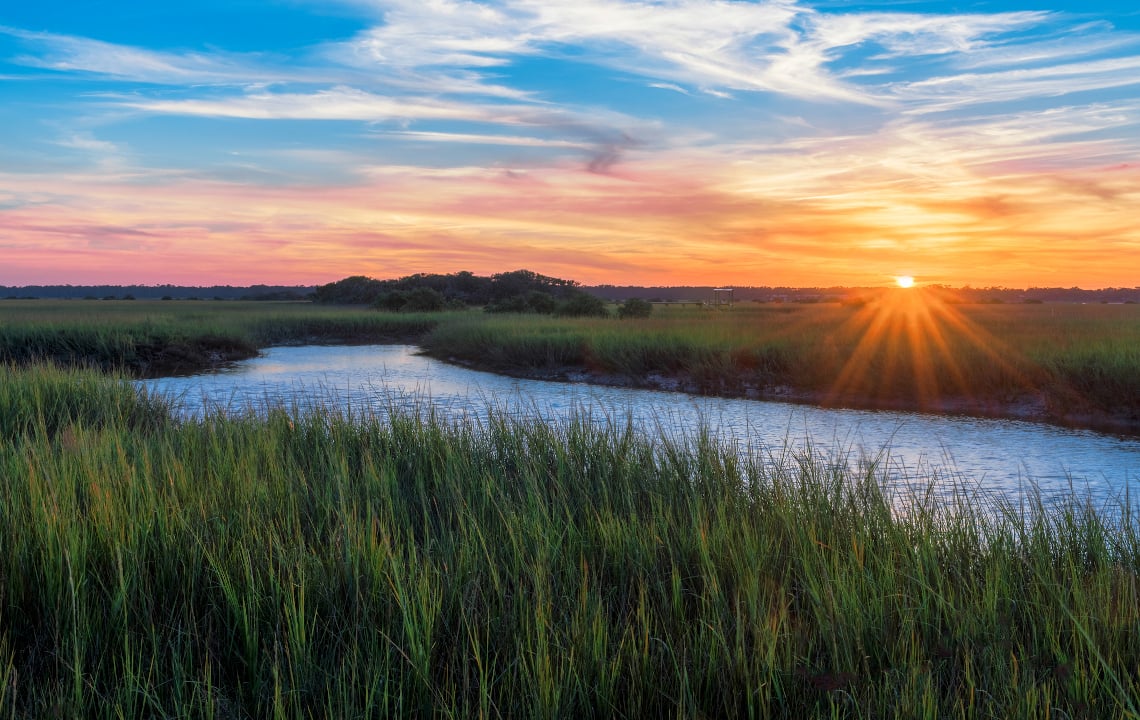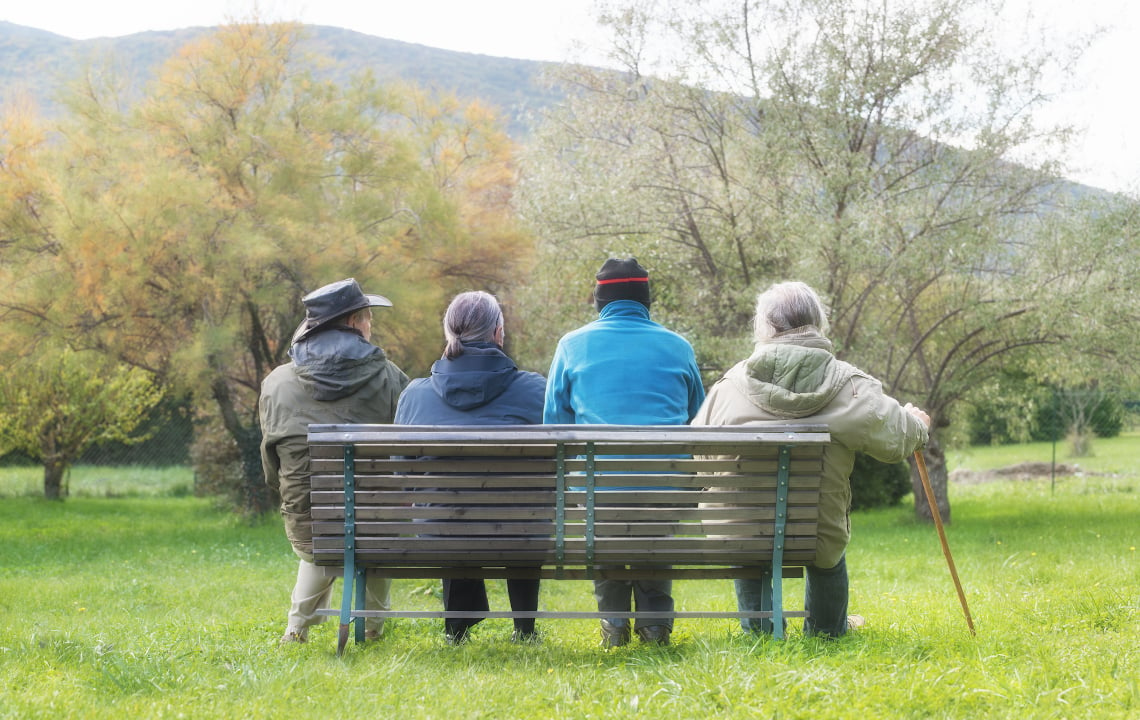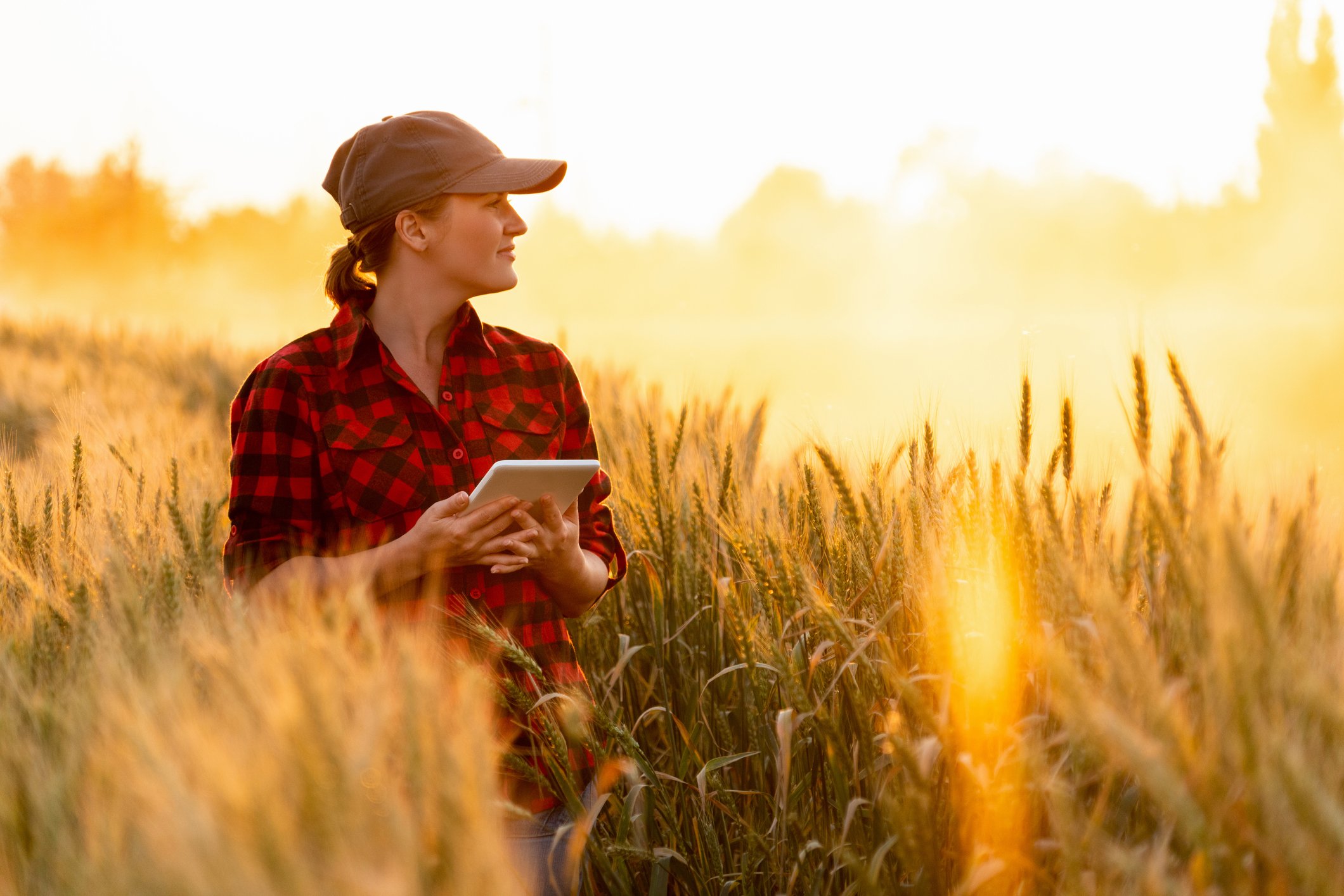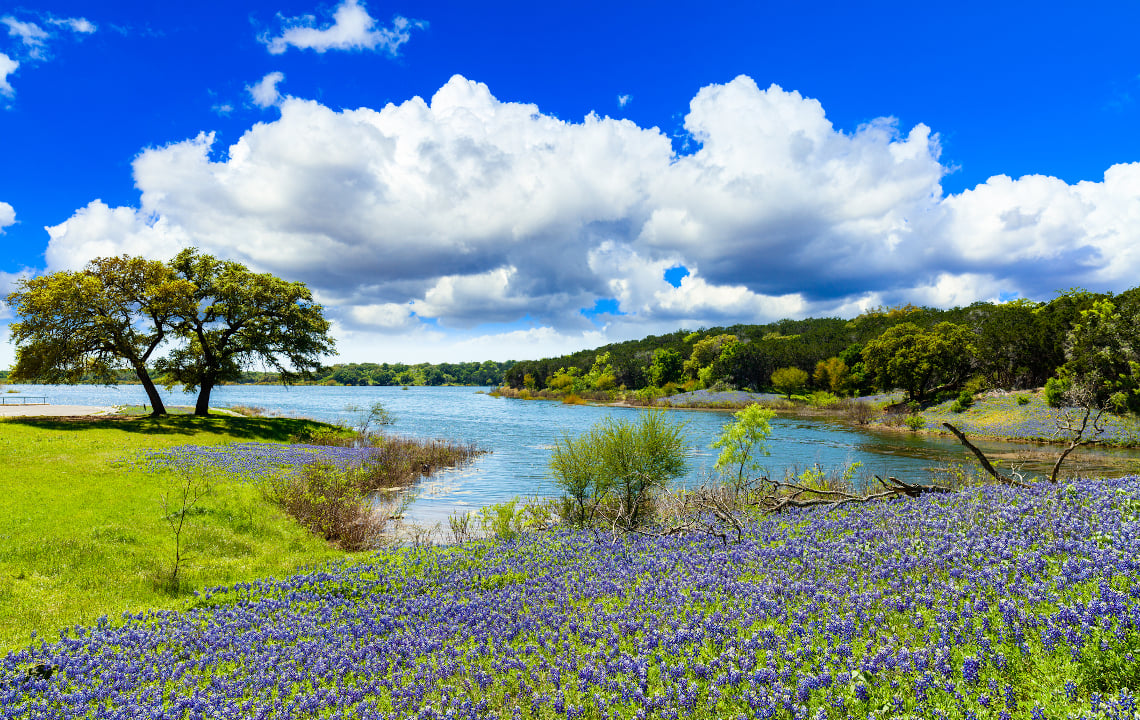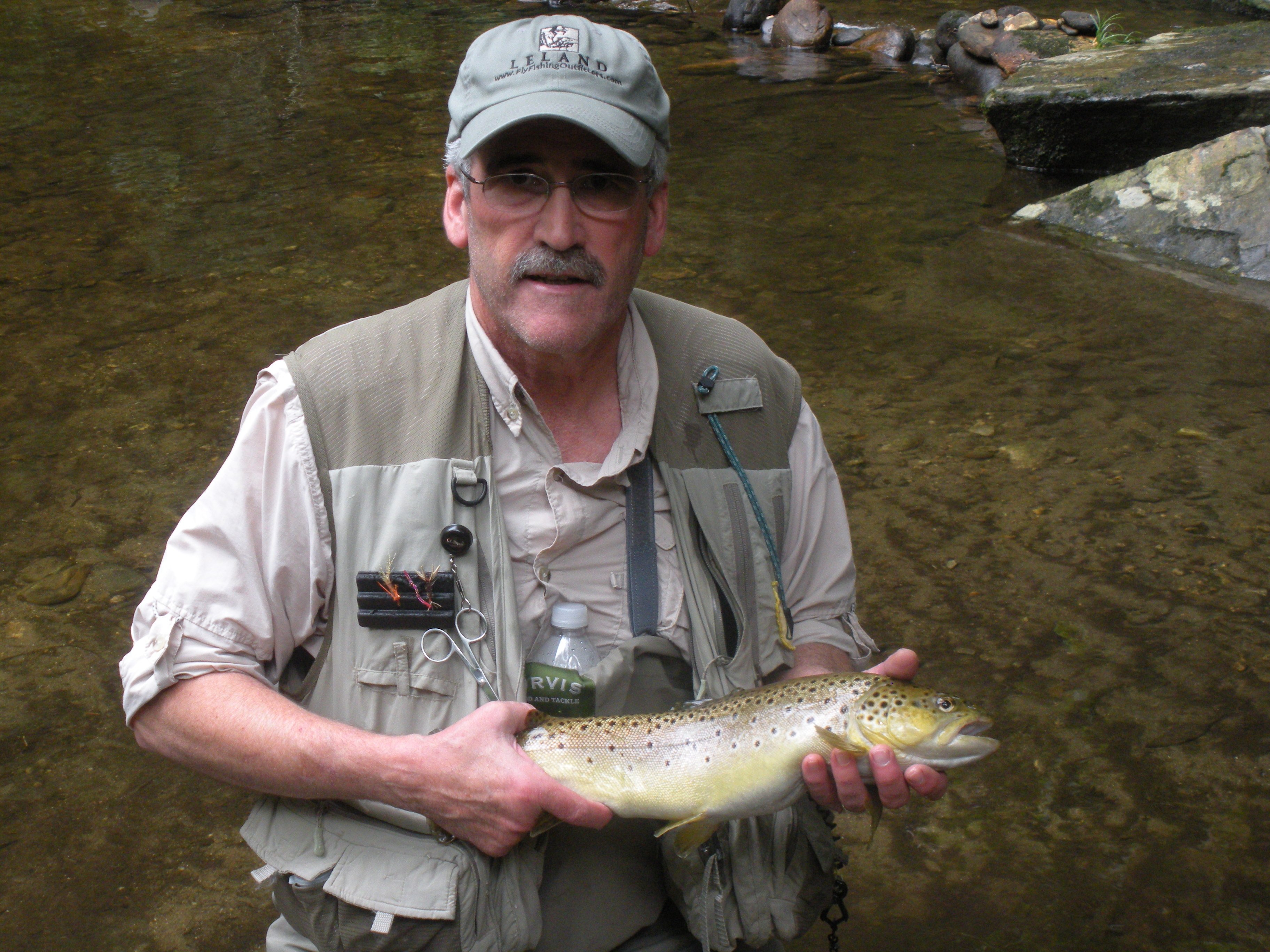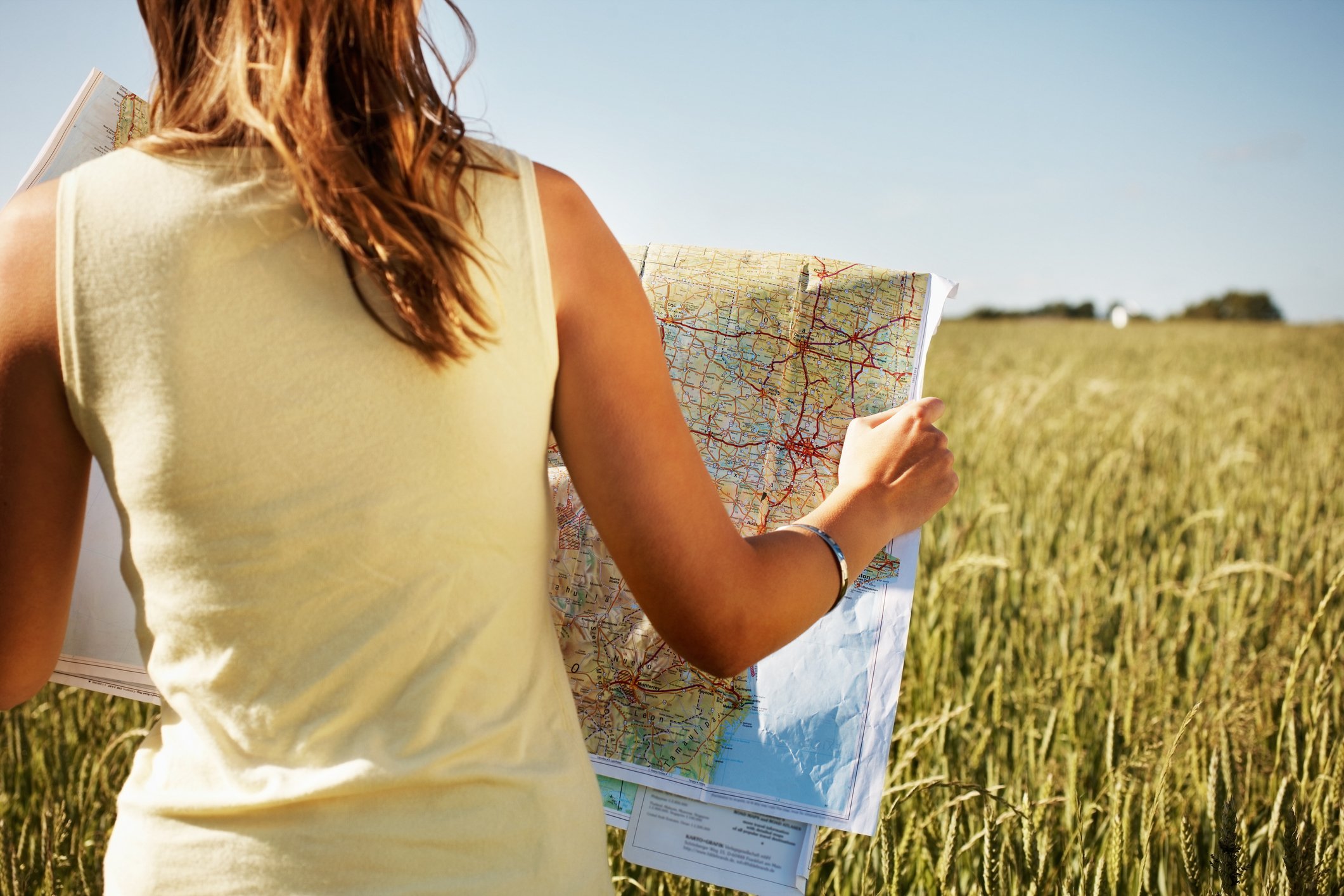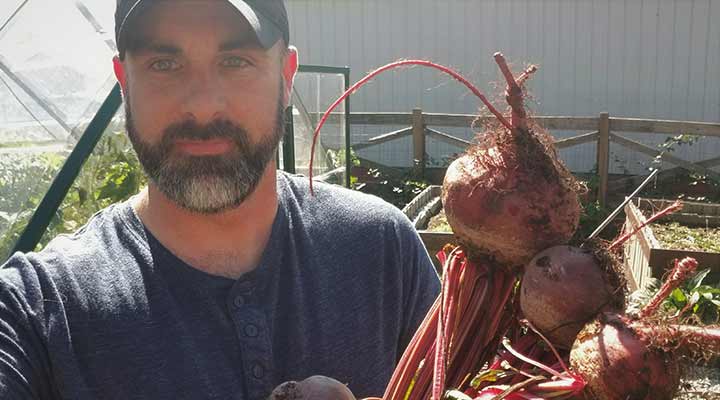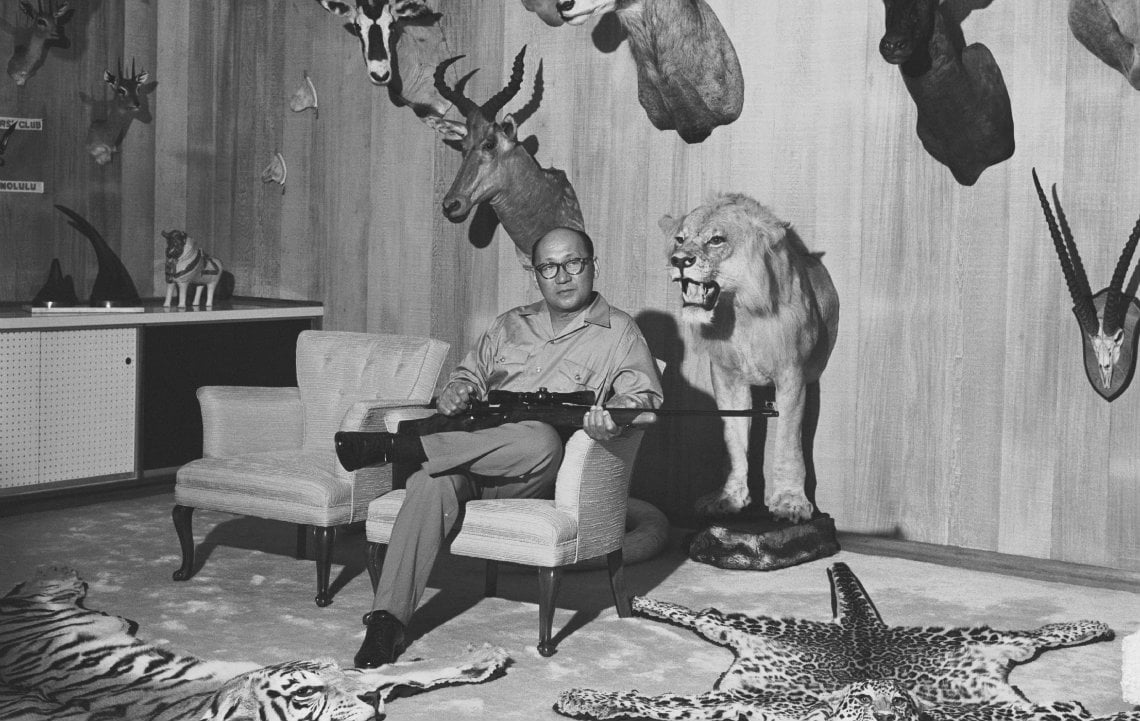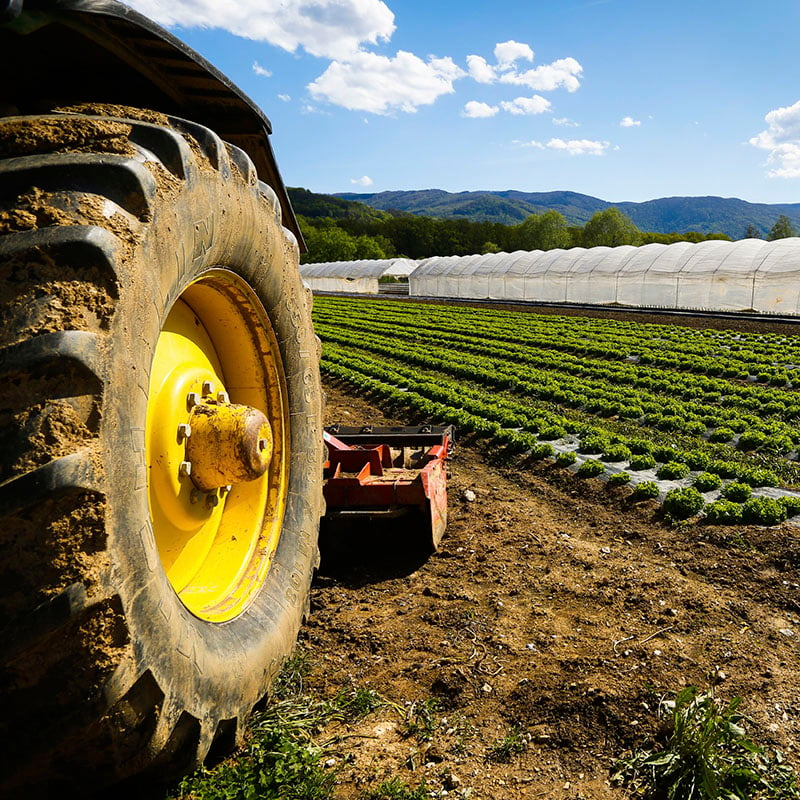At age 39, Harold Thornbro—husband, father of three, business owner and seemingly healthy individual—was diagnosed with stage 3 colon cancer.
This surprised his doctors and family, as Harold appeared to be in fine physical shape...until he wound up in the ER, doubled over with gut pain.
The tests revealed a tumor the size of a tangerine in his colon. Doctors told him it would need to come out with aggressive surgery followed by weeks of recovery, then chemotherapy.
The really shocking thing is, Harold wasn’t surprised by his diagnosis.
He had been running his own trucking business for several years. He knew this type of sedentary career wasn’t optimal for health, but he just didn’t realize how quickly 10-15 hours a day of sitting, breathing in road fumes and daily fast food would catch up to him.
However, Harold saw this as a way to achieve his ultimate dream: to start a rural homestead in the country.
“I grew up in the ‘homesteading’ lifestyle even though we didn’t call it that. We were just doing what every rural family around us did back in the ’70s and ’80s, which was grow a big garden and raise a few animals and put up as much food as you could to get through the year.”
Sadly, that dream was put on hold as he was forced to face the reality of his new diagnosis and recommended treatment.
Harold took the advice of his doctors, scheduling surgery with plans to begin chemotherapy after his surgical recovery.
A normally positive person, he found his diagnosis and treatment options plus the depletion of their savings due to missed work depressing. But he prepared as best he could and went through with the aggressive surgery that resulted in the loss of one-third of his colon.
During his recovery from surgery, Harold took the time to reflect on how he got to this point in his life and what he could do to change it.
In his own words: “I was off work for about 8 weeks recovering from the aggressive surgery. I wasn’t doing much physical activity at all but I used that time for research and planning.”
His love of homesteading had already led him to the conclusion that unhealthy food and lifestyle greatly contributed to his cancer, so in addition to researching homesteading, he delved deep into the world of alternative cancer treatments.
Says Harold, “I guess I always intuitively knew that eating more naturally was better for my health, as probably most people do. But in the months before I started growing my own food I verified that with a lot of research. Also, documentaries like ‘Food Inc.’ and ‘Fat, Sick and Nearly Dead’ were wake-up calls to the problems with much of the food industry and the link to poor health.”
Since he couldn’t exercise in his present state, he knew eating healthier, chemical-free food was his best starting point...but organics are expensive, so he kept looking for ways to supply himself with healthier food.
That’s when he came across a YouTube documentary called “Homegrown Revolution”, which showed how a family was growing most of their own chemical-free food on just one-tenth of an acre.
This got Harold excited about what he could do with his small in-town property. And he began detailed planning to start his own urban homestead as soon as his health allowed him.
Then chemo changed his life forever.
When it was time to start chemotherapy, Harold was feeling pretty good. He’d even begun a regular exercise program of daily walking.
But his health went downhill fast when his chemo treatments began, says Harold:
“I did my first treatment on my 40th birthday, because I didn’t want to delay it any longer. Chemo was really hard on me, worse than for most I think. At least that’s what they were telling me. The nausea was unbearable, and I also started back to work a couple weeks later so it was really messing with my job performance.”
Based on his reaction to chemo, Harold began seriously considering those alternative cancer treatments he had learned about during his recovery.
After three more excruciating chemo treatments, he had had enough and decided to “rebel” against conventional treatment.
As you can imagine, his doctors, family and friends were not on-board with Harold’s decision to quit chemo.
His new plan? Eat right by growing his own chemical-free, homegrown food, purge his home of harmful chemicals and exercise.
“My plan was basically to grow as much healthy food as was possible on our small-town lot, hunt, fish and forage as much as possible, buy what we couldn’t grow or raise from providers of organic products, cook from scratch, reduce toxins in the house and use herbal remedy options as much as I could.”
When we asked Harold what his doctors thought about his decision, he said this:
“Most of the doctors I had, especially my oncologist, were very good and caring and really thought the best course of treatment was for me to continue with chemotherapy after my surgery and go the route that they have been prescribing for years.
“We actually had some good conversations about it and they really thought the path I was going down would have me back in their office with advanced terminal cancer within a year or two.
His friends and family were also upset by his decision to take an alternative approach.
“Honestly, a lot of the people who love me the most were pretty upset by my decision.”
Harold found his greatest source of support in those early months through online homesteading communities, and others who had experienced major health breakthroughs from eating natural, healthy, homegrown foods.
7 ½ years later, Harold is cancer-free—and he credits his alternative plan to beat cancer through homesteading and changing his lifestyle.
How on earth did he accomplish this? Especially given his poor state of health after chemo and small in-town yard?
He started slowly, kept his day-job, drew support from his online communities and didn’t give up.
“Because we are so limited on space, we can’t grow and raise all of our food—but we can grow a lot through intensive growing practices.”
“When I stopped doing the chemotherapy, I got a lot of my energy back and actually felt pretty good. Going back to work did limit my time, so I became a mostly weekend homesteader, doing what I had to through the week—like feeding animals and watering gardens—and saving the bigger jobs for my days off.”
It only took a few short months of homesteading until Harold started feeling better
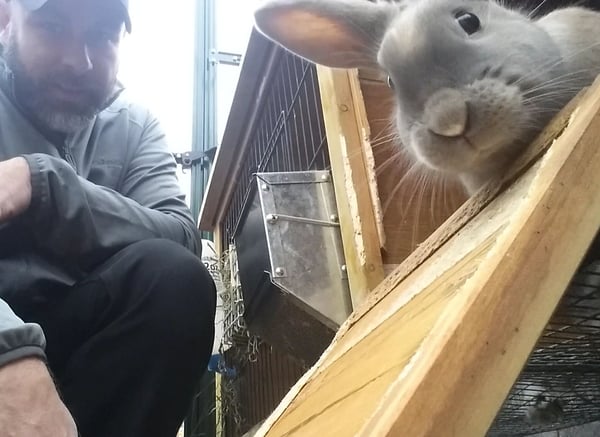
“I started feeling better after I stopped chemo, but I started feeling better than I ever had my entire life within a few months of healthy eating, which resulted in me losing about 60 pounds.
“I was quite amazed at how much better I felt, I had never had more energy and couldn’t believe how much clearer my thoughts were.
“I think when you’re exhausted and have low energy due to a bad diet, you feel like you’re in a fog within your brain and don’t even realize it until it goes away.”
How Harold kept moving forward when internal doubts and naysayers came knocking
It is no small feat to quit chemo and tell everyone you’re going to “beat cancer” by eating healthy, homesteading and exercising.
Here’s how Harold kept going despite internal and external critics:
“Nothing will inspire you like seeing results, and what I was doing was working. I still went to the doctor for routine tests to make sure the cancer hadn’t returned, and year after year I kept getting good news that not only was it gone, but my overall health was excellent. I was no longer overweight, no longer had high blood pressure, my breathing and heart rate were great and I just felt much better than ever before.”
And he did win the support of his friends and family.
“There are still moments when you need people around you that cheer you on to keep up the hard work of living this lifestyle. After some time my family and friends had bought into what I was doing and encouraged and even helped me.
“Blogging and podcasting about the homesteading lifestyle was another way that kept me inspired and this also resulted in building up an amazing online community that constantly encourages me,” he explains.
Which aspects of homesteading were most instrumental to his healing?
“The healthy food I’m sure had the biggest impact, but no doubt the entire package that comes with growing your own food makes a difference.
“Getting outside and working is good for the body and you can’t ignore the mental side of homesteading that brings satisfaction and influences your health. I also think that the enjoyment of the work and the beauty does a lot for your health.”
Despite his limited growing space, Harold has chosen to grow flowers for pleasure, which he believes also help him feel good and stay healthy.
“So everything worked together for my recovery without a doubt.”
What his doctors had to say about his recovery
“I’ve been cancer free for over 7 years now, and I would say my doctors just think I was lucky.
“I’m not sure I would call my recovery miraculous, to me the miraculous thing is that most everyone doesn’t have cancer from eating the way we do and taking in all the toxins in the world. People who seem healthy and live like the majority of people, there is your miracle.”
Words of wisdom for aspiring Homesteaders and those seeking greater health
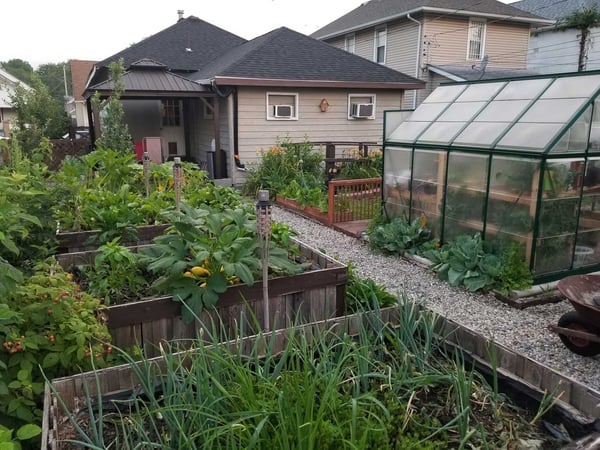
While he would still love the opportunity to own a larger piece of land some day, Harold has made his urban homestead work on a very small piece of land.
Here’s his advice to those in a similar situation:
“Rural life most certainly opens up many options for the homesteader and makes things easier. But no matter where you live, there are things you can do to make a huge difference in your life and take major steps in your homesteading journey.”
And to anyone wishing to regain their health through better eating and lifestyle choices...
“Just start doing something, start cooking from scratch and eating out less, learn all the different ways to preserve healthy food even if you have to buy that food at a farmers’ market or the organic section of a grocery store.
“Grow something, even if it has to be in a pot in the window sill. Just start taking steps toward the life you want to live today.”
To learn more about Harold’s extraordinary journey and his small-town homestead, visit him online at: https://smalltownhomestead.com/.
To learn more about bio-intensive/small-scale farming, check out our interview with “The Market Gardener” Jean-Martin Fortier in: “How Many Acres Do You Need for a CSA?”
All photos courtesy of Harold Thornbro.
The opinions expressed in this article are those of the interviewee and do not necessarily reflect the opinion of Raydient Inc.


